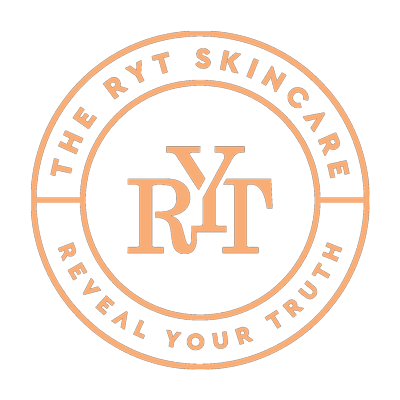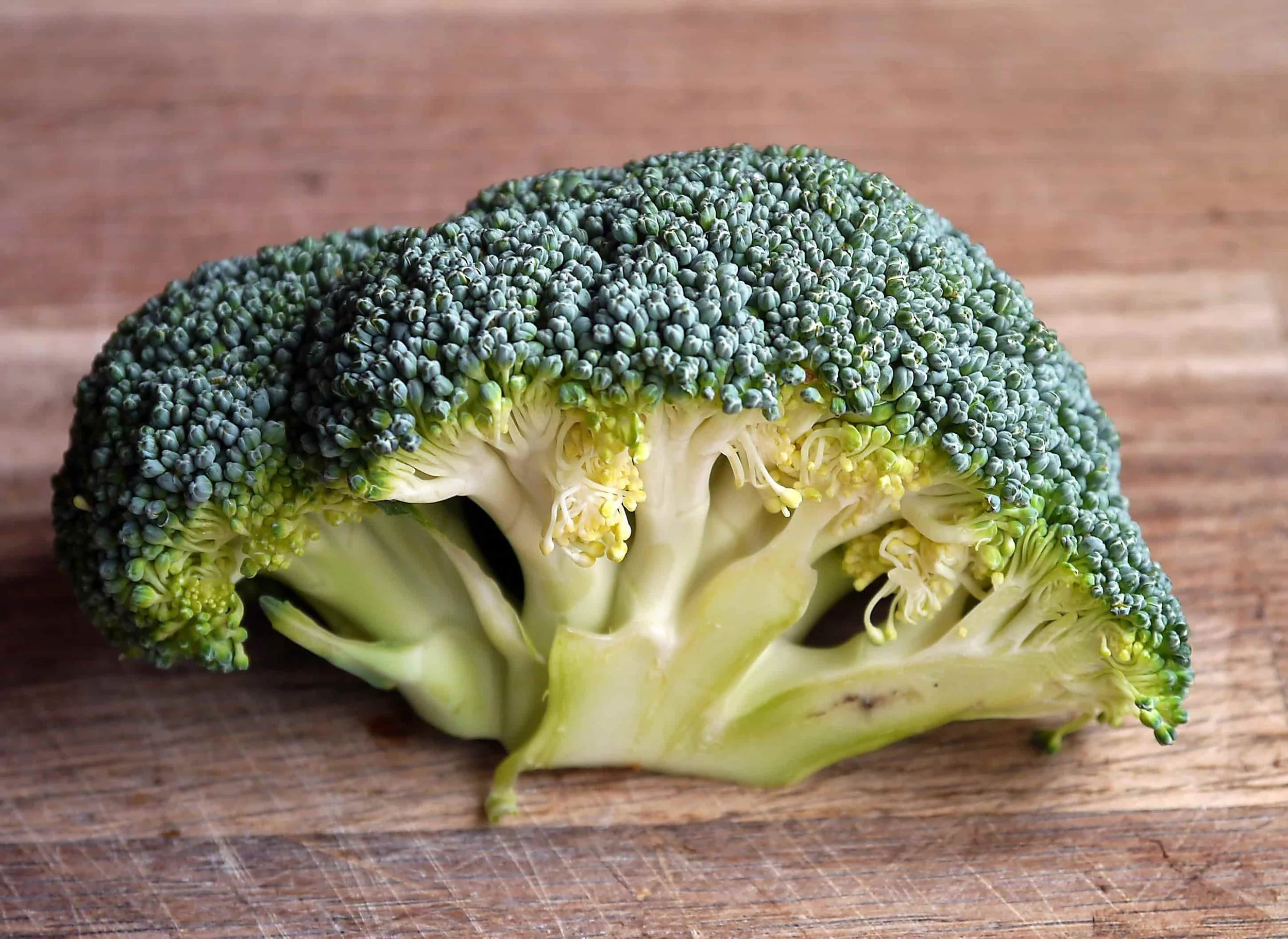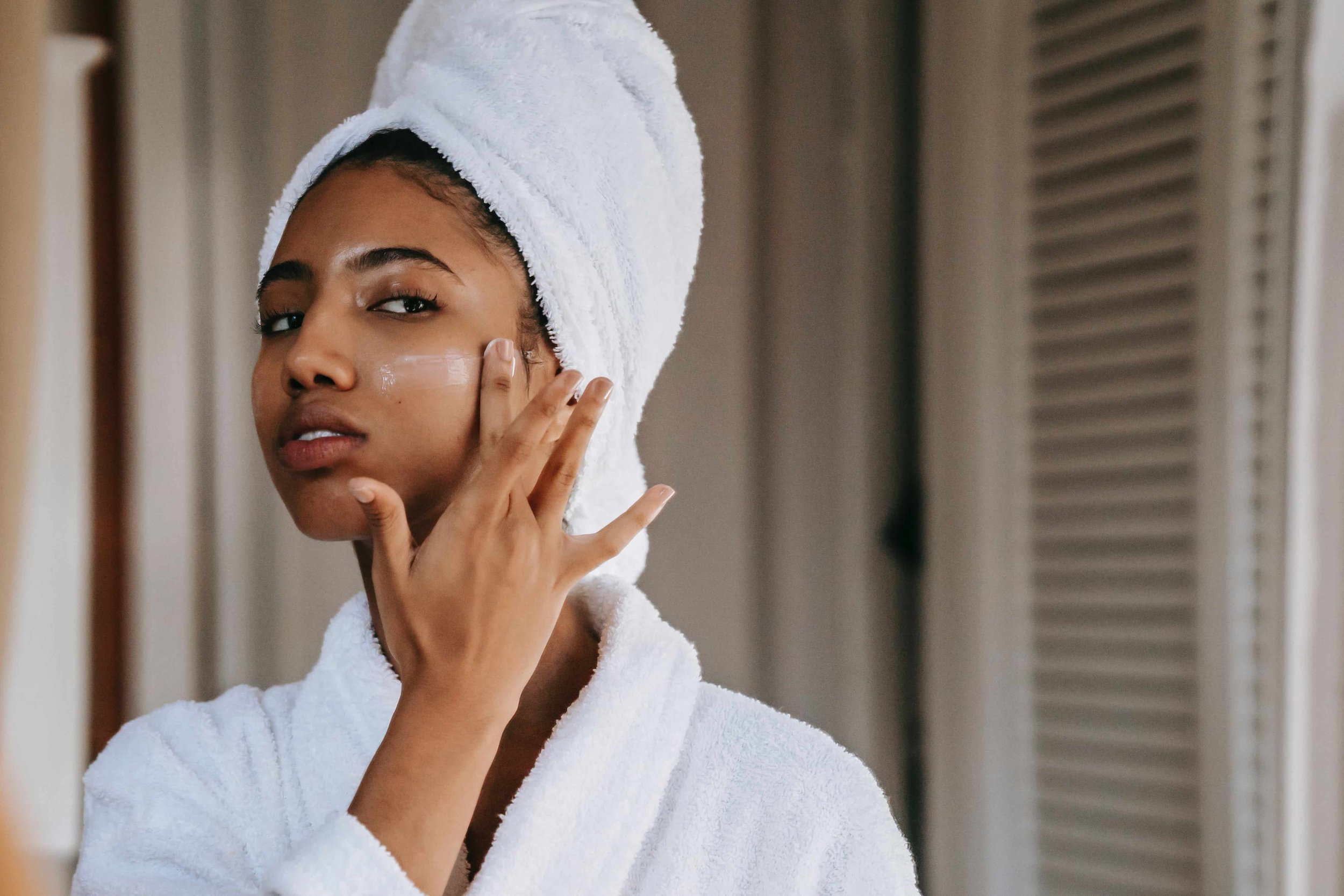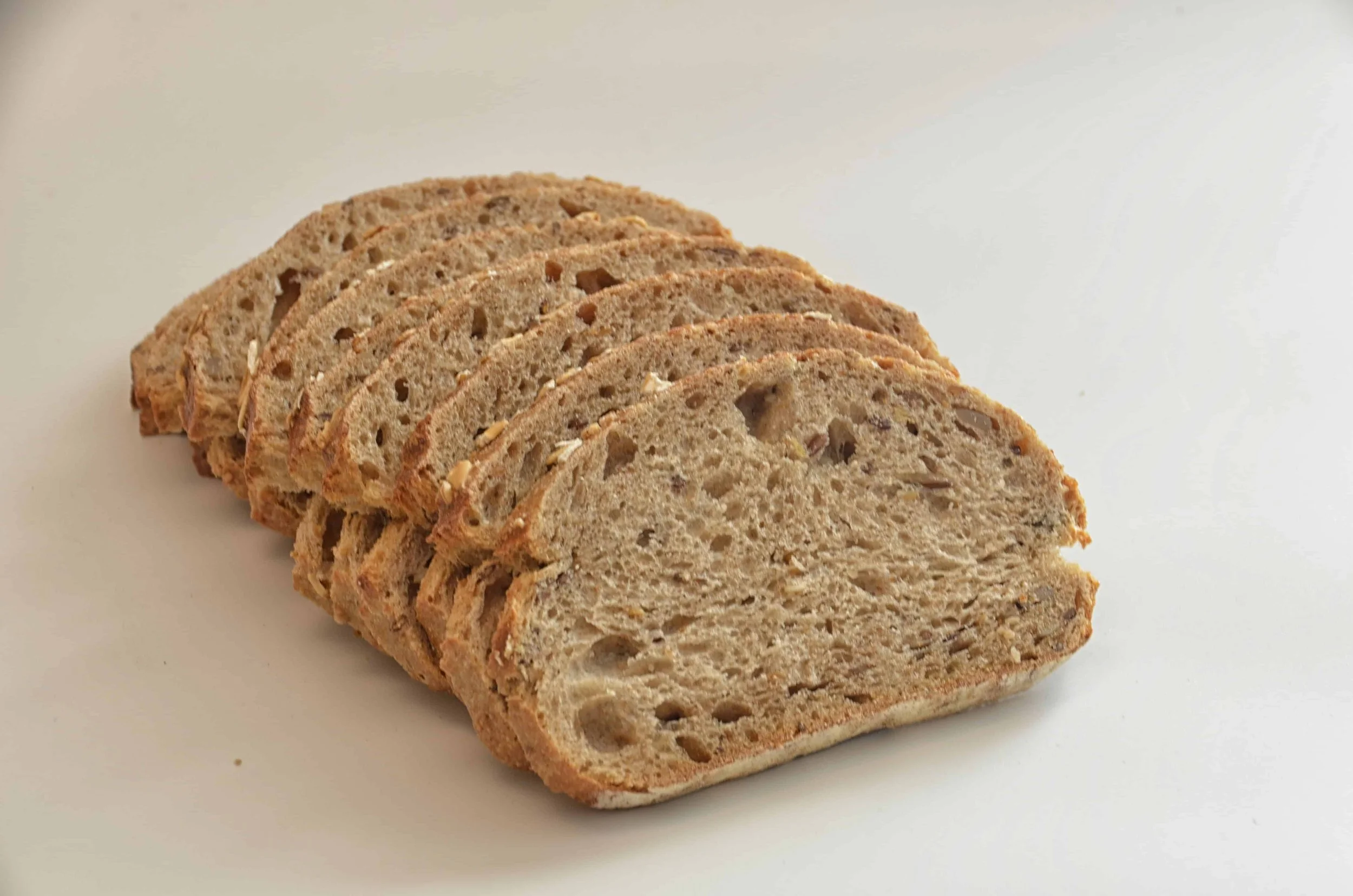5 Nutrition Tips for a Healthy Skin Complexion in 2023
Your skin is the largest, most important organ in your body and it carries out essential functions for maintaining optimal health. It acts as a protective barrier that allows nutrients to enter while preventing hazardous bacteria or viruses from entering - all this without you even realizing it! Plus, it helps regulate temperature and produces vitamin D when exposed to sunlight.
But what's more? Thanks to its sensitive nerve endings you can sense external stimuli like heat, coldness, or sharp objects which prevents any potentially damaging exposures.
Taking care of our skin is not only a matter of external maintenance. Sure, the right (or the RYT) products are essential, but our dietary habits have a considerable influence on all organs. So, of course, those influences extend to your largest organ -- the skin!
To provide your epidermis with the nourishment it needs to perform its various essential tasks as well as look radiant and beautiful, here are some key nutritional ingredients you should consider having in your meals.
Foods for Healthy Skin Complexion and Glowing Skin
To keep your skin looking and feeling its best, it's essential to provide it with all the nourishment necessary. To do so, I highly recommend these nutrient-rich products that will have you glowing in no time!
Water
You may not think water is crucial, but it truly plays a vital role in your body. Water comprises the majority of our cells and fluids, helping to regulate body temperature while cushioning joints with shock absorption. Significantly so, adults are composed of 60% water!
When it comes to preserving healthy, radiant skin, water is just as vital. Our skin consists of three layers: the external epidermis, middle dermis, and hypodermis (innermost layer). Without enough hydration reaching our outermost layer, our skin can become dry and devoid of skin elasticity. It's important to remember that when looking after your skin health optimally - replenishing moisture must come from the inside out!
Research has revealed that increasing one's water intake can help improve skin elasticity and hydration within a fortnight! If you have dry skin, this is an ideal way to boost your skin health. Plus, drinking more water helps you stay properly nourished and prevents any potential health issues related to dehydration.
Knowing how much water you should consume daily is essential for optimal health. According to the Mayo Clinic, women must strive for 2.7 L (11.5 cups) of fluids a day, while men ought to aim for 3.7 L (15.5 cups). These hydrating liquids don't just come from drinking water but can also be obtained from other beverages or even food sources such as soups, fruits, and vegetables that possess high-water content!
If you find yourself sweating significantly due to exercise or living in a hot and humid climate, if you are pregnant or breastfeeding, or if you suffer from urinary/digestive tract issues such as kidney stones, vomiting, or diarrhea, your body may require even more water than the average individual.
Protein
Protein is a vital macronutrient, meaning that our bodies require substantial amounts of it daily – much more than with micronutrients (vitamins) where we only need minuscule doses. This nutrient has various functions; from building cells and antibodies to forming enzymes helpful for digestion. The core structure of your body including bones, muscles, organs, etc., comprises protein as well. Different proteins are created when diverse amino acids join together in unison.
Your skin is made up of several different proteins. For example, collagen and elastin are very plentiful and build up the structure of your skin. Over time, and with exposure to the elements, your body’s ability to produce collagen decreases. Keratin is another important protein in your skin. Keratin makes up the outer epidermis layer giving it rigidity and enhancing its barrier protection.
The recommended daily amount of protein is based on your body weight. For every 20 lbs you weigh, you should try to get just over 7 grams of protein each day. This means a person who weighs 140 lbs needs about 50 grams of protein per day, while someone who weighs 200 lbs would need about 70 g protein/day. Protein is found in meat, poultry, fish, dairy, and eggs (including egg yolk). Plant-based sources of protein include soy, lentils, beans, nuts, seeds, whole grains, and even vegetables like corn, broccoli, and asparagus.
Essential fatty acids
There are two types of fatty acids that are essential nutrients for our overall health and our skin. They are linoleic acid (omega-6) and linolenic acid (omega-3). Omega-3 fatty acids, in particular, are anti-inflammatory and have been linked to many health benefits including improvements in rheumatoid arthritis, ulcerative colitis, diabetes, heart disease, and psoriasis, to name a few.
A higher intake of linoleic acid is associated with lower levels of skin dryness and thinning as the skin ages. On the other hand, a lack of omega-3 fats is linked to increased water loss from the skin, drying it out and causing weakness in the protective outer barrier.
To support and sustain healthy skin, consuming healthy fats, such as omega-3 and omega-6 fatty acids, is critical. Oily, fatty fish (like salmon or tuna), shellfish, nuts (walnuts and brazil nuts especially!), seeds (flax seeds, chia seeds, sunflower seeds, pumpkin seeds...you name it!) healthy oils like olive oil, soybean oil, or canola oil; leafy vegetables; avocados – these are all delicious sources of vital EFAs for radiant skin.
Still not sure how to get your healthy, essential fats? Fish oil supplements pack a convenient punch of multiple beneficial vitamins plus the essential fatty acids that make up healthy skin.
Research indicates that fish oil has anti-inflammatory properties and can improve the hydration and overall appearance of your skin. Hydrated skin trumps dry skin, but before utilizing any new supplement, however, it is wise to confer with a healthcare professional for advice.
Vitamin C
Vitamin C is an irreplaceable nutrient and has a range of critical purposes, including optimizing your body's absorption and utilization of other essential nutrients. Packed with antioxidant properties and acting as a major powerhouse for supporting healthy skin, Vitamin C must be included in any balanced diet!
Vitamin C is essential for maintaining skin health as its deficiency (scurvy) can lead to skin lesions, slow healing of wounds, and easy bruising. Additionally, a lack of Vitamin C causes "corkscrew hairs," which are an obvious indication that the body needs more Vitamin C.
Above all else, one's collagen levels remain stabilized when sufficient amounts of Vitamin C are present in the body - making it a key component to keep your skin looking radiant!
To nourish your body with the proper daily dose of Vitamin C, aim for at least 75mg each day. Nature provides us with a variety of delicious sources such as bell peppers, citrus fruits (oranges and grapefruits), broccoli, cauliflower, strawberries, kiwis, blackcurrants, potatoes, rose hip, and parsley. Eating antioxidant-rich fruit and nutrient-rich vegetables can help you easily achieve your goal!
Vitamin E
Vitamin E, a collective of tocopherols vitamins that are fat-soluble antioxidants, is vital for maintaining healthy skin. When combined with Vitamin C and zinc, it can expedite wound healing significantly. A lack of Vitamin E leads to dry and red skin conditions - the importance of obtaining this valuable vitamin cannot be overstated!
Vitamin E can be used topically to help reduce redness and mitigate some of the damage caused by the sun. Moreover, when taken internally in supplement form over several months, it has been found to improve symptoms associated with dermatitis (skin inflammation) according to one clinical study. Additionally, Vitamin E assists your skin cells from within by shielding collagen and fats from becoming damaged.
To ensure you are meeting your daily requirements for Vitamin E (alpha-tocopherol), the recommended amount is 15 mg. Fortunately, a variety of natural sources can provide this essential vitamin! From vegetables such as spinach and broccoli to nuts like almonds and hazelnuts, from oil varieties like wheat germ oil or sunflower oil to fruits including kiwis and corn - there's no shortage of delicious options that will help you keep up with your Vitamin E intake.
Skin Care Beyond Nutrition
Nutrition is key to skin health, however, don't forget other vital practices that are designed to foster and defend the skin. Above, I provided my top 5 go-to nutrition tips for skin; now let's discuss further how you can protect your complexion in order to obtain radiant, healthy-looking skin!
Use gentle cleansers and warm (not too hot) water to keep skin clean
When cleansing your skin, it's essential to select gentle cleansers and use warm (not scalding hot) water. Aggressive soaps and piping-hot temperatures can strip the skin of its natural oils leaving a dry, tight feeling instead.
Mild cleansers, like the Reveal Your Truth Green Tea Citrus Cleanser, clean without inducing irritation while still preserving the epidermis' natural moisture level. Furthermore, lukewarm water better opens pores for a deeper cleanse - dirt removal with no redness or dehydration in sight!
Moisturize after taking a shower or washing your hands
Replenishing your skin with moisture after a shower or washing your hands is critical to maintaining its hydration and avoiding dryness. When we cleanse our skin, water, and soap can remove natural oils from it, making it feel tight and parched. Therefore, moisturizing is key to preserving skin health.
After a bath or shower, quickly applying a moisturizer helps to keep your skin hydrated and replenished. Make sure you select the right type of moisturizer for your skin type, then apply it directly on damp skin to achieve optimal results. This will provide an extra protective layer against dryness while also preserving the delicate moisture barrier that naturally exists on our bodies.
Avoid things that bother your skin such as harsh cleansers, fragrances, and irritating fabrics
Ensure your epidermis stays healthy and balanced by preventing abrasive cleansers, strongly-scented items, and bothersome materials. Search for lighter, unscented washes to maintain your skin sensation supple as well as glowing. Pay attention to fabrics that may be too harsh or itchy - pick gentler resources whenever possible.
If you're looking to safeguard your skin from irritation, opt for mild and scent-free skincare products with fewer components. Natural fabrics such as cotton or silk can also help reduce potential irritants compared to synthetic fabric options.
Additionally, there are topical lotions and creams specifically designed for those with sensitive complexions that can provide soothing relief while protecting the skin's natural barrier.
If you have allergies or intolerances (e.g., to gluten or pollen), avoid those
To support healthy skin, those who suffer from allergies or intolerances must steer clear of the exact allergens and substances that cause their symptoms. Otherwise, these can lead to inflammatory and irritable conditions such as eczema, hives, and rashes.
For instance, those with celiac disease or gluten intolerance may encounter dermatitis herpetiformis from consuming wheat, barley, and rye. Allergies to pollen can also cause itching and rashes on the skin's surface.
Avoiding these specific allergens is key to improving one's skin health by reducing symptoms. With proper identification of allergies and food intolerances, individuals will notice remarkable improvements in the overall quality of their skin!
It is crucial to remember that sometimes, to stay away from problematic allergens, you might need to make drastic lifestyle changes like turning towards a gluten-free diet or opting for hypoallergenic skincare products.
Limit your sun exposure and use sunscreen as appropriate
To guard your skin against the damaging effects of UV radiation, it is essential to practice sun safety measures such as limiting exposure and applying sunscreen. Prolonged sun exposure can cause painful sunburns, early aging, and even increase the likelihood of developing skin cancer.
To stay safe in the sunshine: try avoiding being outdoors during peak hours (10 am-4 pm), seek shade whenever you can, and use a minimum SPF 30 sunscreen every two hours or after swimming/sweating; these precautions will help provide optimal protection against harmful UV damage!
When selecting a sunscreen, it is critical to double-check that the product provides defense against both UVA and UVB rays. Be sure to use a generous amount of broad-spectrum sunscreen, about one ounce or a shot glass worth, so that your entire exposed area is adequately covered. This will ensure you get effective protection from harmful sun damage, staving off the potential for developing skin cancer.
Be physically active
Exercise is the key to a robust and healthy body, including your skin! Regular activity helps to boost blood flow while nourishing and hydrating your complexion. Moreover, physical exercise can lower stress levels which are often responsible for acne breakouts or eczema flare-ups. Make sure you get out there daily to look after both your health - inside & outside!
Exercise is not only beneficial for your body, but also for the health and appearance of your skin. When you sweat during exercise, it flushes out toxins from the dermal layer to reveal naturally-glowing skin.
Moreover, sweating helps to boost collagen production to increase elasticity and prevent wrinkles; with regular exercise sessions, one can easily achieve youthful-looking skin! However, don't forget to take a shower after exercising to ensure that all bacteria have been washed away.
Try to get enough quality sleep
Quality sleep is essential for regenerating skin cells, allowing you to maintain a radiant skin tone. Not only does it improve its look, but it also helps in healing and restoring the skin's natural balance with collagen production during sleep. Furthermore, getting enough rest reduces inflammation that can create skin issues such as acne and eczema. Invest in yourself by ensuring you get adequate quality nights of restful sleep - your beautiful complexion will thank you!
Inadequate sleep can cause the skin to appear dull, pale, and puffy, and can worsen fine lines and wrinkles. To promote healthy skin, it's important to aim for 7-9 hours of quality sleep each night and to establish a consistent sleep schedule.
Use a humidifier and wear gloves when the weather is dry and cold
Winter weather can often lead to skin damage, as the air becomes dry and cold. Fortunately, there are steps you can take to keep your skin looking healthy and hydrated: using a humidifier in combination with wearing warm gloves will protect your skin from becoming itchy, flaky, or otherwise irritated. Moreover, adding moisture back into the environment with a humidifier is especially beneficial for those prone to eczema or psoriasis--allowing them to live comfortably all season long!
During cold temperatures, wearing gloves is a great way to protect your skin from the damaging effects of wind and extreme weather. Gloves can help seal in hydration and keep hands soft, making them an especially beneficial accessory for those with vulnerable dry, cracked skin.
Avoid tobacco
Smoking tobacco can have a profoundly detrimental effect on the health of your skin, leaving you with early skin aging (wrinkles before their time, age spots) and an overall lackluster complexion. Furthermore, it significantly reduces blood circulation resulting in inadequate oxygen and vital nutrients being dispensed to the dermis leading to sagging and weakened collagen fibers which will undoubtedly result in premature aging of the skin.
For any hope of achieving healthy, youthful-looking skin for years longer than expected, avoiding smoking or using any type of tobacco product is paramount.
Final thoughts on Nutrition and Skin Health
Nourishment isn't just for the inside of your body, as it also affects what's on the outside! Your skin is a complex organ that requires several key nutrients to keep it healthy and heal itself. Hydration, protein, and omega-3 fatty acids count among important macronutrients, while vitamins C and E come into play when specifically looking at potent antioxidants—which your skin needs to thrive.
In addition to consuming a healthy diet, it's equally important that you nurture the exterior of your skin. Utilize The RYT Method regularly, which contains a gentle cleanser, serum, and nourishing moisturizer, allowing you to avoid any allergens or irritants that could damage your skin. If you are experiencing skin problems, seek help from a healthcare provider immediately.
To ensure the best possible outcomes to keep your skin healthy, consulting with a licensed nutrition professional is highly recommended. Don't worry if you feel restricted by certain dietary protocols; our team at RYT will be happy to help you get that healthy glow!
Is your skin deprived of the essential nutrients it needs to promote skin health? Are you looking for ways to incorporate wholesome, nourishing foods into your daily routine that can help revitalize and restore your skin's natural radiance?
In 2023, we will be posting a host of blogs on this topic, including the top fruits and vegetables to improve skin tone and essential vitamins for smoother skin, but if nothing else works for you, please don't hesitate to contact me at apparel@therytskincare.com and let us see what we can do with our program!














